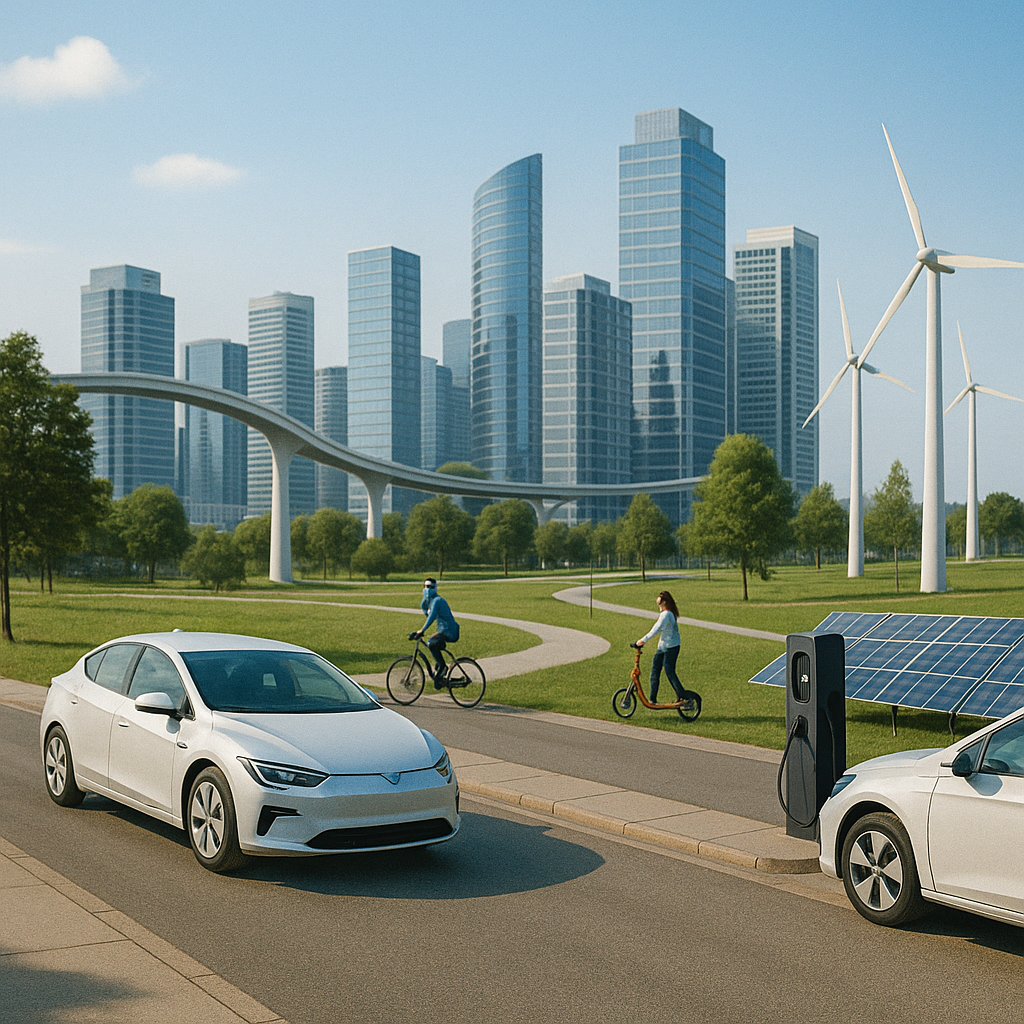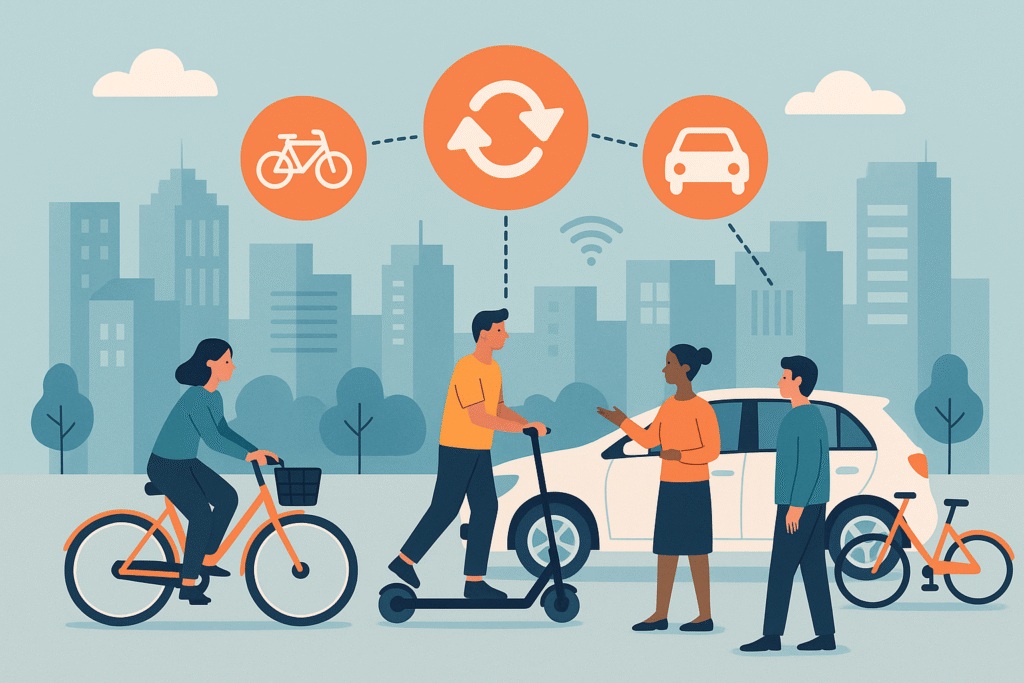In an age marked by climate urgency, economic uncertainty, and shifting urban lifestyles, transportation is no longer just about getting from point A to B. How we move, individually and collectively, plays a crucial role in shaping the future of our cities, our health, and our planet. Here are the top three reasons why sustainable transport is not just important, but essential right now.
1. Climate Change Can’t Wait
Transportation is currently one of the most carbon-intensive sectors globally, accounting for nearly a quarter of all greenhouse gas emissions. In Europe, over 70% of transport-related emissions come from road traffic alone, primarily private cars. As the climate crisis accelerates, these numbers are simply unsustainable.
Adopting sustainable transport methods, like public transit, cycling and shared mobility, is one of the most direct and impactful ways we can curb emissions. But the environmental benefits go beyond carbon: sustainable transport also helps improve local air quality, reducing heat islands in cities and making urban life more pleasant for all.
Switching even a portion of daily commutes from car to bike or bus can significantly reduce personal and collective environmental footprints. These small changes, multiplied across cities and communities, can shape a global shift. In the race against climate change, how we move today will define tomorrow’s world.
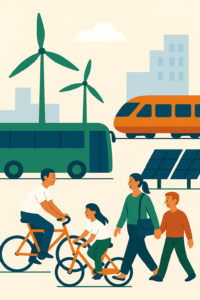
2. Economic Resilience and Access
In an age of rising fuel costs, inflation and widening inequality, transportation is becoming a heavier burden on household budgets. Owning and maintaining a private vehicle often involves expenses that many individuals or families cannot afford.
On the other hand, sustainable transport offers a more affordable and adaptable alternative. Shared mobility platforms can reduce these financial pressures, offering access to mobility without the long-term costs of ownership. In particular, pay-as-you-go models can democratize access, ensuring that people of all income levels can move freely and affordably.
In particular, cities that invest in sustainable infrastructure not only reduce economic stress on individuals, but also enhance productivity and efficiency at a systemic level. In other words: reducing congestion means less time lost in traffic and lower maintenance and energy costs mean more resilient urban budgets.
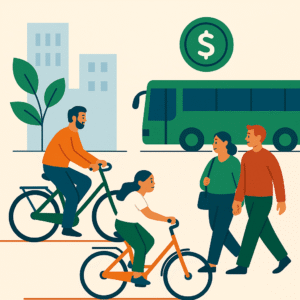
3. Healthier & More Livable Cities
The link between transport and public health is well established, and it’s becoming increasingly urgent. Urban air pollution, largely caused by motor vehicle emissions, is responsible for hundreds of thousands of premature deaths each year globally. Meanwhile, sedentary lifestyles, often tied to car dependency, contribute to rising rates of obesity, cardiovascular disease and mental health challenges.
Sustainable transport, otherwise, supports healthier choices. Active travels for example, builds physical activity into everyday life. Clean mobility options reduce noise and pollution, improving both mental well-being and respiratory health for urban residents.
On a broader scale, prioritizing sustainable mobility means designing cities around people; this results in greener, more human-scale environments: less asphalt, more parks and public spaces, safer roads, and a stronger sense of community. These aren’t just livable cities: they’re thriving ones.
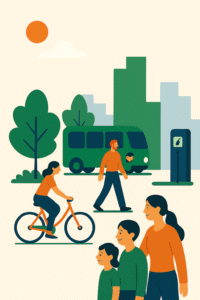
Final Thoughts
The way we move is one of the most powerful reflections of the kind of future we want to build.
What once seemed like fringe discussions, have now become central to conversations about climate strategy, urban planning, and social equity. Sustainable transport is no longer optional: it’s a cornerstone for addressing some of the most pressing challenges of our time
Adopting sustainable mobility practices is not just about reducing emissions or cutting costs: it’s about transforming our relationship with cities and with one another. It’s about designing environments that are more inclusive, accessible, and resilient. It’s about giving people better choices and creating spaces where everyone can thrive.




